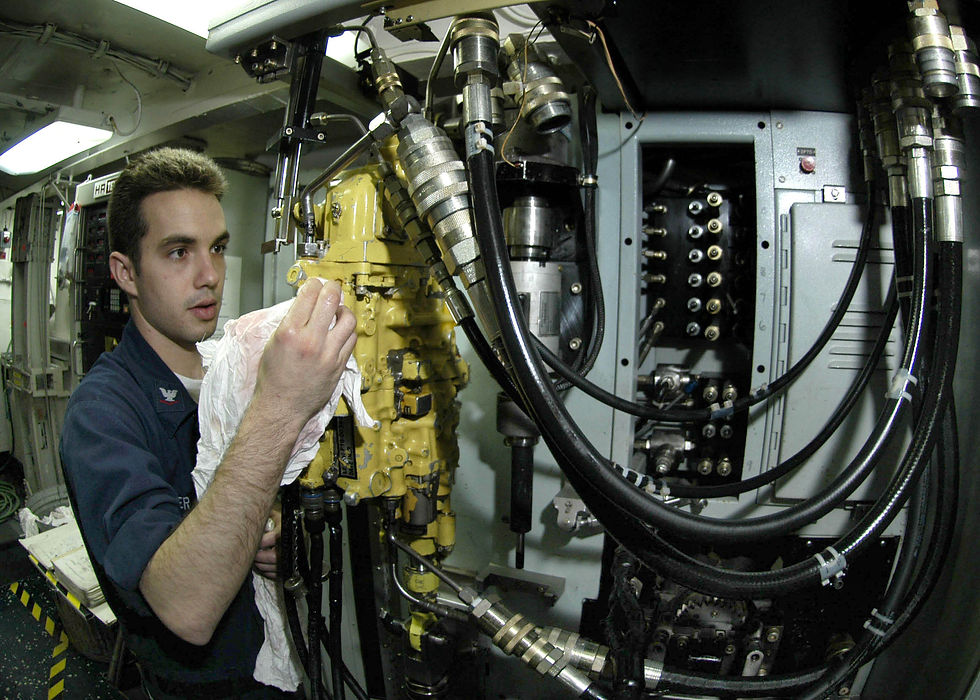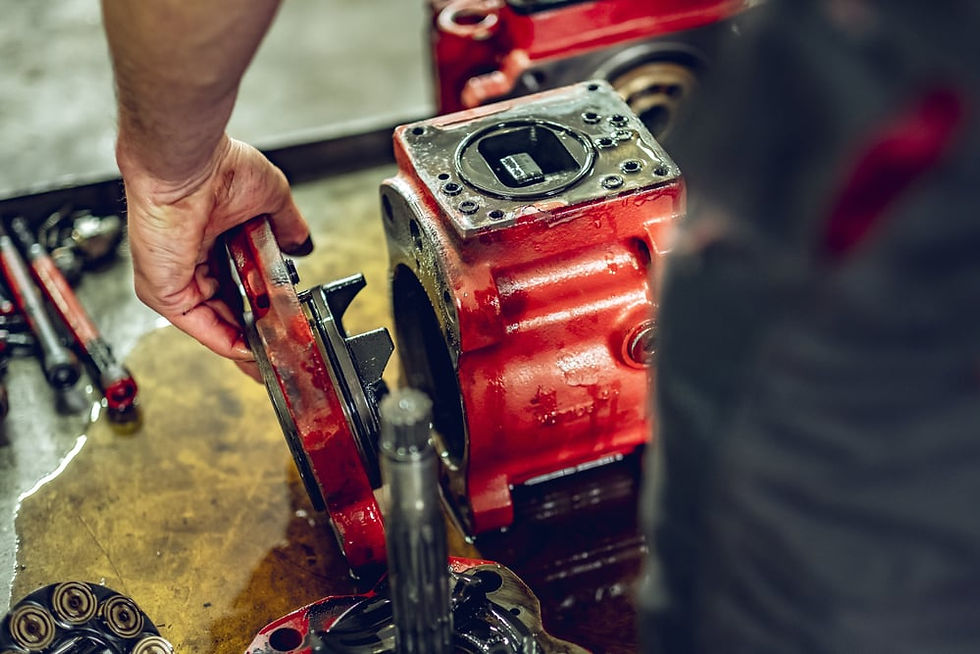
Hydraulic systems are the beating heart of countless industries, from manufacturing and construction to agriculture and aerospace. These systems power heavy machinery, control precise movements, and endure immense pressure — quite literally. When something goes wrong, it's tempting to call a general technician or rely on an in-house maintenance crew to "figure it out." But is that really the best move? Not always. Hydraulic systems are highly specialized, and without the right knowledge, one wrong move could turn a small issue into a costly disaster. That’s why businesses turn to hydraulic specialists — experts with industry-specific knowledge and skills to keep operations running smoothly.
What Is a Hydraulic Specialist?
A hydraulic specialist is a technician trained exclusively in the design, maintenance, repair, and optimization of hydraulic systems. Unlike a general technician, who may have broad mechanical experience, a hydraulic specialist has deep, focused expertise on everything from hydraulic cylinders to pressure control valves.
Key Skills of a Hydraulic Specialist
System Troubleshooting: Identifying root causes of pressure loss, leaks, and slow performance.
Component Knowledge: Expertise in pumps, motors, valves, seals, and hoses.
Custom Fabrication: Ability to create custom hydraulic components tailored to industry-specific needs.
Compliance & Safety: Knowledge of industry standards like OSHA compliance for hydraulic equipment.
If your equipment relies on fluid power, you need a professional who speaks that language fluently.
The Risks of Relying on a General Technician
General technicians are undoubtedly valuable. They can handle a range of maintenance tasks across electrical, mechanical, and general equipment repair. But when it comes to hydraulics, the complexity jumps up several levels.
Here’s why relying on a general technician for hydraulic issues is a risky move:
1. Misdiagnosis of Problems
General technicians might know how to replace a worn hose or change a filter, but diagnosing why the system failed requires deeper insight. Without proper knowledge, they might misidentify the real cause of the problem, leading to:
Unnecessary part replacements (when the real issue is deeper)
Delays in repairs due to trial-and-error troubleshooting
Production downtime that costs businesses thousands of dollars per hour
Example: A slow hydraulic press might seem like a valve issue, but a hydraulic specialist would recognize that it’s likely caused by pressure loss due to internal leakage in the cylinder seals.
2. Incomplete Repairs
A generalist might patch up a hydraulic hose and call it "fixed." But without understanding the broader system, they could miss bigger, hidden problems — like contamination inside the fluid lines. Small issues that go unnoticed can snowball into catastrophic failures.
Hydraulic specialists know that repairs require root-cause analysis, not just surface-level fixes. They’ll inspect everything from fluid quality to internal seals to ensure the system is fully operational.
💡 Example: If a technician replaces a hose without flushing the hydraulic fluid, contaminants could circulate, leading to valve clogging and system failure a few weeks later.
3. Lack of Preventative Maintenance
General technicians typically react to problems after they arise. Hydraulic specialists are proactive. They focus on preventive maintenance to catch issues before they lead to downtime. Preventive maintenance is especially crucial for hydraulic systems, as the cost of downtime can be astronomical.
Hydraulic specialists offer services like:
Regular fluid analysis to spot contamination early.
Pressure testing to check for hidden leaks.
Seal inspections to catch wear before it causes leaks.
Example: Instead of waiting for a hydraulic pump to fail, a specialist might notice rising heat or contamination levels, allowing for early intervention. This approach could save companies thousands in emergency repairs.
4. Failure to Meet Safety Standards
Hydraulic systems operate under extreme pressure. A mistake during repairs can result in equipment explosions, flying debris, and serious injury. General technicians might not fully understand the risks involved with pressurized fluid systems.
Hydraulic specialists follow strict OSHA safety guidelines for hydraulic equipment and ensure repairs are done with precision and care. From safe depressurization procedures to lockout/tagout protocols, specialists prioritize safety every step of the way.
Example: A general technician might attempt to disconnect a pressurized hydraulic hose without bleeding the system. A hydraulic specialist would follow protocols to release pressure safely before handling any components.

How Hydraulic Specialists Save You Time and Money
Hiring a hydraulic specialist isn't just a "nice-to-have" — it’s a smart business decision. Here’s why it pays off:
Faster Repairs and Reduced Downtime
Hydraulic specialists know exactly where to look when a system fails. Their industry experience allows them to diagnose issues faster than generalists, minimizing production delays.
Time saved = money saved.
Fewer Repeat Repairs
With specialists on-site, you can expect long-term fixes, not quick patches. This means fewer unexpected repairs down the road, saving you from unplanned expenses.
Longer Equipment Lifespan
Specialists understand how to maintain equipment to maximize lifespan. Regular inspections and preventive maintenance services keep your systems in peak condition for years longer than reactive maintenance ever could.
How to Spot a True Hydraulic Specialist
Not all "specialists" are created equal. So, how can you tell if you’re dealing with a true hydraulic pro?
Here are the signs you’ve found a certified hydraulic specialist:
Certifications & Training: Look for industry-recognized credentials, like IFPS (International Fluid Power Society) certifications.
Years of Experience: Hydraulics is a complex field. Look for specialists with 5+ years of experience in fluid power systems.
Access to Equipment: Hydraulic repairs often require special equipment (like pressure testing tools) that general technicians won’t have.
Custom Capabilities: Can they design and fabricate custom hydraulic solutions? True specialists can.
When Should You Call a Hydraulic Specialist?
It’s not always clear when you need to call in a specialist. Here are some telltale signs:
Equipment is underperforming (slower movement, sluggish response)
Sudden fluid leaks appear on hoses, pumps, or cylinders
Unusual noises like whining, knocking, or screeching
Fluctuating pressure with no clear cause
If you see any of these signs, don’t wait. Every hour of downtime costs money.
Why PSI Hydraulics Is Your Go-To Team of Hydraulic Specialists
If you want expert service, call in the experts. PSI Hydraulics specializes in hydraulic system design, repair, and maintenance for a wide range of industries. Unlike generalists, PSI Hydraulics offers:
On-site emergency repair to get you back up and running fast.
Custom fabrication of hydraulic cylinders, hoses, and seals.
Preventive maintenance to reduce the chance of breakdowns.
With decades of experience, the team at PSI Hydraulics knows that precision matters. Trust them to handle your hydraulic needs with speed, accuracy, and care.

Final Thoughts
When your hydraulic system breaks down, you have two choices:
Call a general technician and hope for the best.
Call a certified hydraulic specialist and get the job done right the first time.
While the first option might seem cheaper, the risks far outweigh the savings. Misdiagnosed problems, incomplete repairs, and safety hazards can lead to skyrocketing costs.
The smarter move? Hire a hydraulic specialist.
If you’re ready to protect your investment, avoid downtime, and work with industry experts, contact PSI Hydraulics today. Their hydraulic specialists are standing by to keep your operations running like clockwork.
.png)
Comments